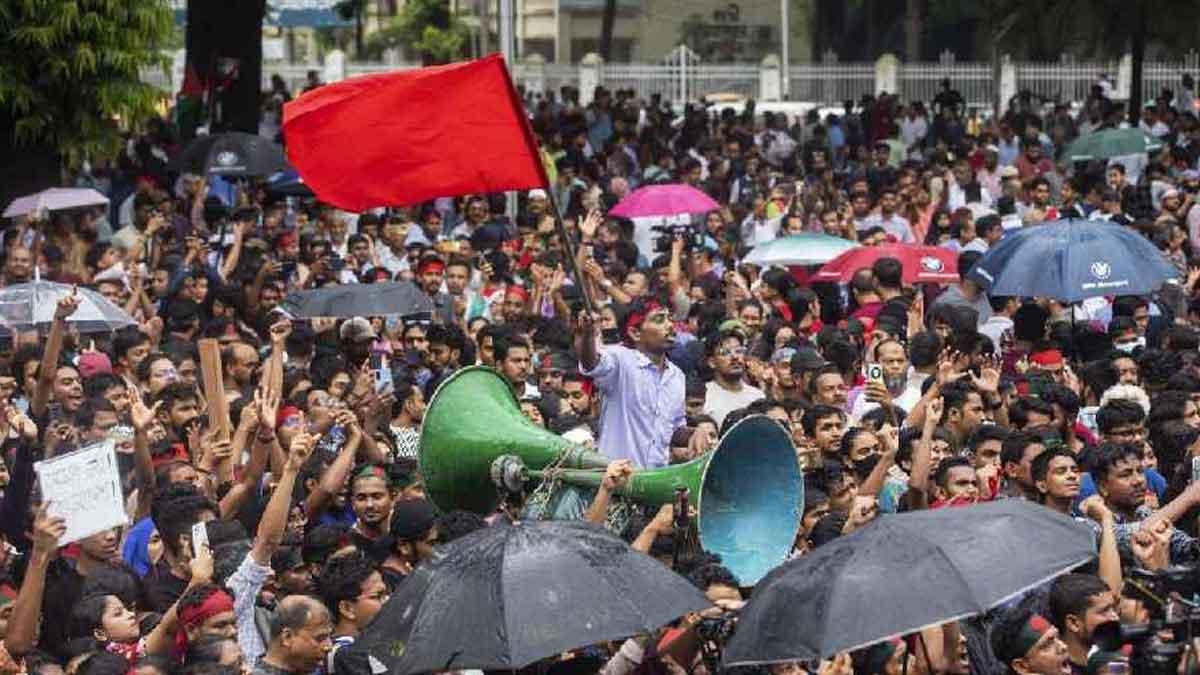The whole of Bangladesh witnessed violent clashes on Sunday in which nearly 100 lives, including 14 policemen, were lost and hundreds of people were injured. The flare-up was caused by clashes between anti-government activists who were demanding the Prime Minister's resignation and pro-government supporters. After the fierce violence had taken place, authorities imposed a national curfew and cut mobile internet access.
The violence broke early Sunday when the clashing of demonstrators, part of a non-cooperation campaign of Students Against Discrimination, with supporters of the Awami League and its associated groups, including Chhatra League and Jubo League, took place. The protesters were demanding resignation from the government in the face of a contentious job quota system.
The Bengali-language newspaper Prothom Alo said at least 98 people have died in clashes and subsequent violence in various towns across the country. Fourteen police officials were killed in the violence: 13 were killed at the Enayetpur Police Station in Sirajganj and one died in Elliotganj of Comilla. More than 300 police officers were injured.
AN EARLIER outbreak killed more than 200 people when confrontations between police and students turned violent over a quota system to reserve 30 percent of government jobs for the near of kin of veterans from Bangladesh's 1971 War of Independence. This led to over 11,000 arrests in protest-related incidents.
They said the protests have been intensified today with many anonymous people and activists of right-wing Islami Shashontantra Andolon taking part. The protesters have also set up barricades on important highways and the capital, while assaulting police stations, ruling party offices, and vehicles.
In reaction to the anarchy, the administration has imposed a curfew in key cities as well as small towns starting 6 PM Sunday, in addition to deploying troops, border guards, and elite Rapid Action Battalion commandos to tame the anarchy. The government suspended and ordered the closing of Facebook, Messenger, WhatsApp, and Instagram and 4G mobile internet services.
Prime Minister Sheikh Hasina termed the outburst of demonstrators as acts of "terrorists" and called to take a strong stance against the protesters. She has ordered an urgent meeting with key security officials, which included members of the National Committee on Security Affairs, over the deteriorating situation.
The government has declared a three-day general holiday from Monday to ensure public safety amid the ongoing unrest. In casualty reports, the prevailing violence has claimed lives in several areas including Feni, Laxmipur, Sirajganj, Dhaka, and many others.
At least six leaders and activists of the ruling Awami League died in Narsingdi when a clash led to bloodletting. At least 56 people with bullet-hit wounds were taken to Dhaka Medical College Hospital from different places.
Ex-senior military generals have urged the government to seek political solutions for the crisis instead of using force.
Protesters said they will not give up their agitation and will continue to demand road safety, so schools, colleges, and businesses remain closed in Dhaka. Demonstrators are blocking traffic and chanting slogans against the government. Reports said some vehicles at the Bangabandhu Sheikh Mujib Medical University were torched and there were cases of vandalism on the premises of the hospital.
Another organizer, Nahid Islam, said they had planned for a mass sit-in with the unveiling of plaques at the Martyrs' Memorial in tribute to those who died in the quota reform protests.
Homes and offices of some political activists have also come under attack. The BNP and its allies have supported the students' quota reform movement, and Prime Minister Hasina has offered negotiations but the leaders leading the movement have refused to talk, and the government has also accused Jamaat-e-Islami and its students' wing of 'hijacking' the protest with the support of the ex-premier and head of the opposition Bangladesh Nationalist Party, Khaleda Zia.
Read also | Trump Intensifies Attacks on Harris with Personal Innuendos
Read also | Iran Claims Hamas Leader Was Killed by Short-Range Missile


















